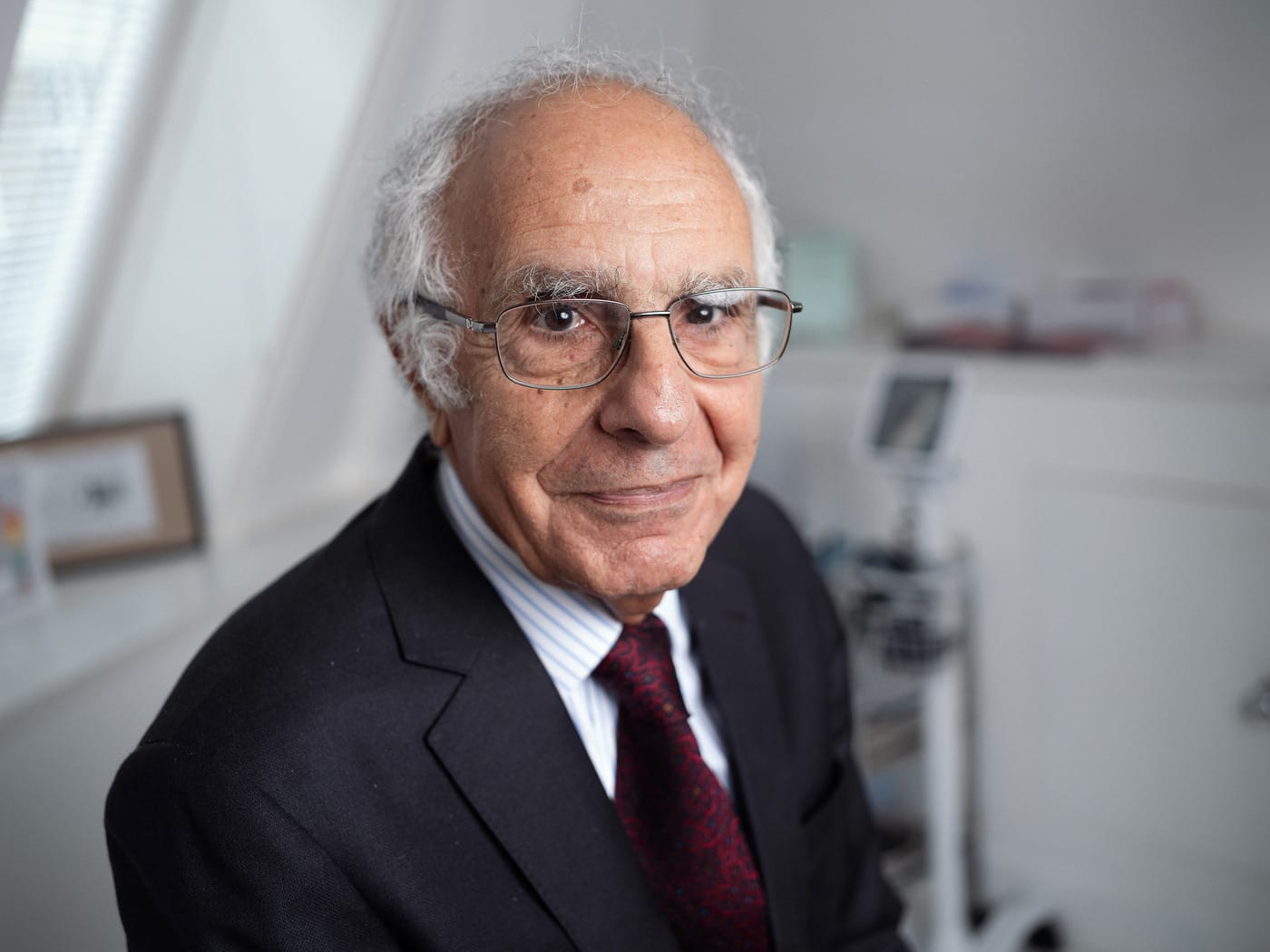London Medical Cardiology
High cholesterol
London Medical’s Cardiology Clinic provides the most up-to-date investigative cardiac procedures for patients with heart problems – and some of the UK’s most renowned cardiologists hold clinics here for all aspects of heart disease.
High cholesterol
Cholesterol is a substance that exists everywhere in your body in all cells, where, together with a contribution from the diet, it is integral to cell structure, the transport of energy between different organs, the manufacture of key hormones and vitamins and the health of blood vessels. When transported in the blood, in complex particles called lipoproteins, the function and role of cholesterol is determined by the lipoprotein that carries it – bad lipoproteins are low density or LDL cholesterol, and good lipoproteins are high density or HDL cholesterol.
If you are found to have high total cholesterol in a blood test, it usually, but not always, indicates that you have high levels of bad LDL cholesterol which could be linked to an increased risk of heart attack or stroke.
What is the difference between good and bad cholesterol?
There are many types of cholesterol, and these are either considered good or bad.
Two types of cholesterol are - high-density lipoprotein (HDL) and low-density lipoprotein (LDL).
HDL moves cholesterol away from your cells and back to your liver. Once it reaches your liver, it will then be either broken down or removed from your body as waste through the bile. Because of this, HDL is referred to as the ‘good cholesterol’.
LDL, on the other hand, takes cholesterol where there is an LDL receptor, some of which exist in your arteries. When there is too much LDL in your body, it builds up within your arteries. This build-up is called plaque and too much of it can cause heart attacks and strokes because it narrows your arteries. For this reason, LDL is referred to as the ‘bad cholesterol’.
High total cholesterol requires treatment when your levels of LDL are too high. Your LDL cholesterol levels can increase if you have inherited an inadequate metabolism. Other factors that have a slight impact include eating lots of unhealthy foods, mainly those containing animal fats while not having enough monounsaturated fats which include nuts, seeds, olive oil, fish and avocado.
If your LDL cholesterol levels are too high, you will have a higher risk of narrowing of arteries supplying the heart, brain and legs and eventually blood clotting and occlusion of vital blood vessels, which can go on to cause heart attacks or strokes.
You often won’t experience symptoms when you have high cholesterol. Instead, the only way to know whether you have it or not is with a blood test and regular monitoring. At London Medical, we include a wide range of tests to establish how high your risk is of having high LDL levels and cardiovascular problems. This means we can personalise your treatment plan to suit your needs. Simply relying on an LDL cholesterol level is usually not enough to determine the extent of arterial risk an individual carries. For example, if you are low-risk but have high LDL cholesterol, you might only need minimal treatment. However, if you have relatively low LDL levels but are at high risk due to genetics, we will regularly monitor your cholesterol and potentially offer preventative medication to avoid early heart attacks.
High LDL cholesterol can be managed effectively with medication and lifestyle changes, so it’s important to get checked on a regular basis. The medication prescribed to lower your LDL cholesterol levels opens up your arteries and reduced the risk of heart attacks and strokes.
Contact our team at London Medical to have your LDL risk assessed and monitor your cardiovascular health. At London Medical, we take a holistic approach when determining your individual risk and base your treatment on multiple different test results and regular checks of your arteries. This way, you receive personalised care that makes a real difference to your health.
Understanding the risks and causes of high cholesterol
When you have high cholesterol, it typically builds up within your arteries and other key organs and causes atherosclerosis — which narrows your arteries and may impair normal blood flow to the heart or brain. Over time, atherosclerosis can lead to blockages which cause a heart attack or stroke.
There are other health problems you can experience when you have high LDL levels. These conditions include erectile dysfunction and foot problems — both of which are more commonly associated with conditions such as diabetes. But they can, and often are related to high LDL cholesterol levels. Most clinically relevant high LDL cholesterol levels are genetically determined.
Familial hypercholesterolaemia is a condition that runs in families and is caused by a genetic mutation. There are five main genes which are the cause of the inherited familial hyperlipidaemias – and inheritance of any of them leads to an increased risk of early heart disease and inheritance of the gene either with a single dose (heterozygous) or a double dose of the gene (homozygous). However there are other genes which contribute to early coronary artery disease and can be detected studying small nucleotide polymorphisms, and patients who inherit many of these that are known to be associated with early coronary artery disease are at increased silent risk of early heart disease.
If you have a genetic predisposition to high cholesterol, it’s vital to maintain a healthy lifestyle and have regular check-ups as it is associated with a very high risk of heart attack at a young age. You will also need to get help in finding out which other members of your extended family may have inherited the gene defect.
Assessing cholesterol levels
Unless you get tested regularly, you won’t know whether you have high cholesterol or not. If your GP suspects that your level might be too high due to your age, weight or health condition like obesity, diabetes or high blood pressure, they will likely suggest that you get a test. Cholesterol is closely tied to genetics and your levels of cholesterol on their own do not define your risk. If someone in your close family suffered a stroke or heart attack at a young age that is a clear indicator of high risk and you should get a detailed assessment by a professional
It’s worth noting that although high blood pressure doesn’t necessarily increase your levels of ‘bad’ cholesterol, people with high blood pressure will often have high cholesterol too, which is why a test may be suggested. It is also recommended that if you have a high blood pressure, your LDL cholesterol level should be lowered with medication even if the LDL cholesterol level is normal.
The results of blood tests to assess your cholesterol will typically show:
- Your total cholesterol
- Non-HDL cholesterol
- LDL cholesterol
- HDL cholesterol
- Triglycerides
Your results can also show a ratio between your total and HDL cholesterol. This will then determine whether you have too much non-HDL cholesterol in your blood. More advanced lipoprotein tests will add lipoprotein (a), apolipoprotein B, oxidised LDL cholesterol, small dense LDL particles, apolipoprotein A1, HDL and LDL particle size and inflammatory markers Lp-PLA2 and myeloperoxidase.
Cholesterol levels can vary between men and women. At London Medical, we take your individual needs into account when deciding what is a risk for you. We will look at factors such as your genetics, health conditions such as diabetes, blood pressure and lifestyle risk factors like smoking. We do advanced lipoproteins (see above) for additional cardiovascular risk markers. We make direct measurements of plaque volumetrically in the common carotid arteries and get a coronary artery calcium score.
To put it simply, we treat patients according to their individual risk, not just their LDL levels.
Lifestyle modifications for lowering cholesterol
Some lifestyle modifications may help with managing cholesterol levels and protecting your heart without using medication.
- Changing your diet. If you eat a diet that consists of saturated and trans fats, your LDL levels will increase. Therefore, it’s important to cut them out of your diet and eat a nutritious, well-balanced one as much as possible in order to maintain a healthy cholesterol level. Research suggests that a Mediterranean diet — which is low in saturated fats and rich in fresh fruit and vegetables, wholegrain cereals, beans and pulses, nuts, seeds and some healthy fats such as monounsaturated fats (olive oil, oily fish, and avocado) — may protect your heart and overall health.
- Being active. As well as being good for your heart health, when you exercise regularly, your HDL levels increase, removing more fat from your arteries. It also modestly reduces your LDL levels. Any activity that increases your heart rate, like walking, swimming, cycling or jogging is good to incorporate into your daily routine. Aim for at least 150 minutes of moderate exercise each week.
- Managing your weight. If you’re overweight, it’s likely that you’ll have higher levels of LDL cholesterol and triglycerides. Keeping to a weight that is healthy for you is great for your heart health, cholesterol levels and overall well-being.
- Get tested regularly. It’s important to regularly check your cholesterol levels using tests and follow-up appointments. In doing so, you can easily keep on top of your cholesterol level and put steps in place before it gets too difficult to manage.
Medication and medical interventions for high cholesterol
Sometimes, you might need cholesterol-lowering medications. These will often be offered when:
- Your cholesterol levels are very high and/or you have a family history of heart attack or stroke
- Lifestyle and dietary changes haven’t lowered your cholesterol
- You’re at a high risk of having a heart attack or stroke
If you are shown to be at an increased risk of heart attack or stroke, then we will provide treatment to help lower your LDL in proportion to that risk. If you are high-risk, your doctor will want to lower your LDL to very low levels. If your risk is low, then minimal treatment will be required.
Any of the following medications may be recommended to you:
-
Basic LDL lowering medications - These are available on the NHS and include any of four statins – rosuvastatin, atorvastatin, simvastatin or pravastatin. For patients with need for increased LDL lowering, ezetimibe, a cholesterol absorption inhibitor is often taken together with a statin.
-
Drugs for use in patients unable to take a statin - Bempedoic acid is a useful drug which is metabolised in a way which avoids statin related side effects on muscle and can be taken in a combined tablet with ezetimibe (Nustendi) or on its own, or in addition to a statin, and ezetimibe for further LDL lowering when required
-
PCSK9 inhibitors - These are injectables taken every fortnight or every 28 days by an injection administered by the patient themselves. These inhibitors are powerful, very protective against cardiovascular events, and completely free of side effects. They can be expensive but are reimbursable by the NHS lipid clinics in patients with familial hypercholesterolaemia, or those who have had a heart attack or required stents. They have to be purchased privately for heart disease protection.
-
Inclisiran - This is a small interfering RNA that stops PCSK9 protein made in the liver and, even though it has the same action as the PCSK9 inhibitors self injected, lasts longer and maintenance treatment is with 6 monthly injections done by your local clinic.
-
Evinocumab (Evkeeza) - This is a new drug which works by inhibiting ANGPTL3 and it is widely believed to be the strongest LDL lowering drug available. It has been passed by the FDA and is expected to be launched soon in the UK and will be especially useful in patients with difficult to treat familial hypercholesterolaemia
The most commonly prescribed medicines for high cholesterol are statins. These are taken daily in the form of a tablet and are designed to help reduce the amount of cholesterol your liver produces.
Statins are very well tolerated, but some individuals can encounter muscle pain. A new drug Bempedoic acid does also inhibit cholesterol production in the liver but is devoid of muscle side effects. Ezetimibe is a blocker of cholesterol uptake in the gut.
If statins do not work or you are unable to take them, you might be offered other tablets or injections which increase receptors in your body for LDL cholesterol.
At London Medical, we have a lipid clinic that specialises in helping people with gene abnormalities that cause high cholesterol and familial hyperlipidaemia. We investigate your level of risk to tailor the best course of treatment around your specific circumstances. We do this by utilising advanced lipoprotein analysis using nuclear magnetic resonance spectroscopy (NMR) to obtain particle numbers of your total LDL and HDL cholesterol.
Using Europe’s first 3D ultrasound probe, we can check how much plaque is in your arteries and define the intima-media thickness — a measurement we pioneered that is the only safe way in which the progression or regression of arterial atheroma can be followed up over time.
We can then combine all of this information with your family history, your weight, lifestyle and blood pressure to determine the best treatment plan for your cholesterol levels.
Get in touch with London Medical
If you want professional, medical advice about your high cholesterol levels, or simply want to get yours checked, get in touch with our expert team at London Medical. We’ll be able to help diagnose and treat your high cholesterol, as well as provide useful advice to help you lead a healthier lifestyle.
Sources
- https://londonmedical.co.uk/cardiology/high-cholesterol-pathway/
- https://londonmedical.co.uk/cardiology/cholesterol/
- https://londonmedical.co.uk/cardiology/high-cholesterol-treatment/
- https://www.nhs.uk/conditions/high-cholesterol/
- https://www.nhs.uk/conditions/high-cholesterol/how-to-lower-your-cholesterol/
- https://www.nhsinform.scot/illnesses-and-conditions/blood-and-lymph/high-cholesterol
- https://www.webmd.com/heart-disease/guide/heart-disease-lower-cholesterol-risk
- https://www.bhf.org.uk/informationsupport/conditions/familial-hypercholesterolaemia
- https://www.heartuk.org.uk/cholesterol/understanding-your-cholesterol-test-results-
- https://www.heartuk.org.uk/low-cholesterol-foods/choose-low-cholesterol-foods
- https://www.heartuk.org.uk/healthy-living/exercise
- https://www.webmd.com/cholesterol-management/cholesterol-and-weight
- https://www.heartuk.org.uk/low-cholesterol-foods/alcohol
Our Consultants
Dr Ralph Abraham
As a founder of London Medical, Dr Ralph Abraham specialises in diabetes, weight management, endocrinology and cholesterol
Dr Catherine Lunken
Specialist in seeing patients with all types of diabetes using up to date technology. Dr Lunken also sees patients with inherited lipid disorders and those with statin intolerances.
Professor Kausik Ray
One of the most pre-eminent preventative cardiologists in the world.
Our Cardiology specialties
We offer care across a broad range of cardiology specialties. We have some of the top specialists in every aspect of cardiac care. Our entire team is dedicated to working together to consider the results of your investigations, your health and your lifestyle before tailoring a treatment plan to your individual needs.
Our Locations
London Medical is located in the Harley Street medical area. Together with top experts across a range of multi-disciplinary fields, we offer the finest facilities for your care, all under one roof.
Monday to Friday 8.30am to 8pm
Monday to Friday 8.30am to 8pm
Monday to Friday 8.30am to 8pm
Speak to a member of our team
Contact the appointments team
Make an enquiry online using this form and one of our team will be in touch. By using this form you agree with the storage and handling of your data by our team. Alternatively, you can contact us.
You don't need a referral from your GP to make an appointment with us.
Heart Health News
Find out the latest news, thinking and insights from our experts. Our Heart Health News is your go-to source of trusted advice and knowledge on all matters of the heart.






